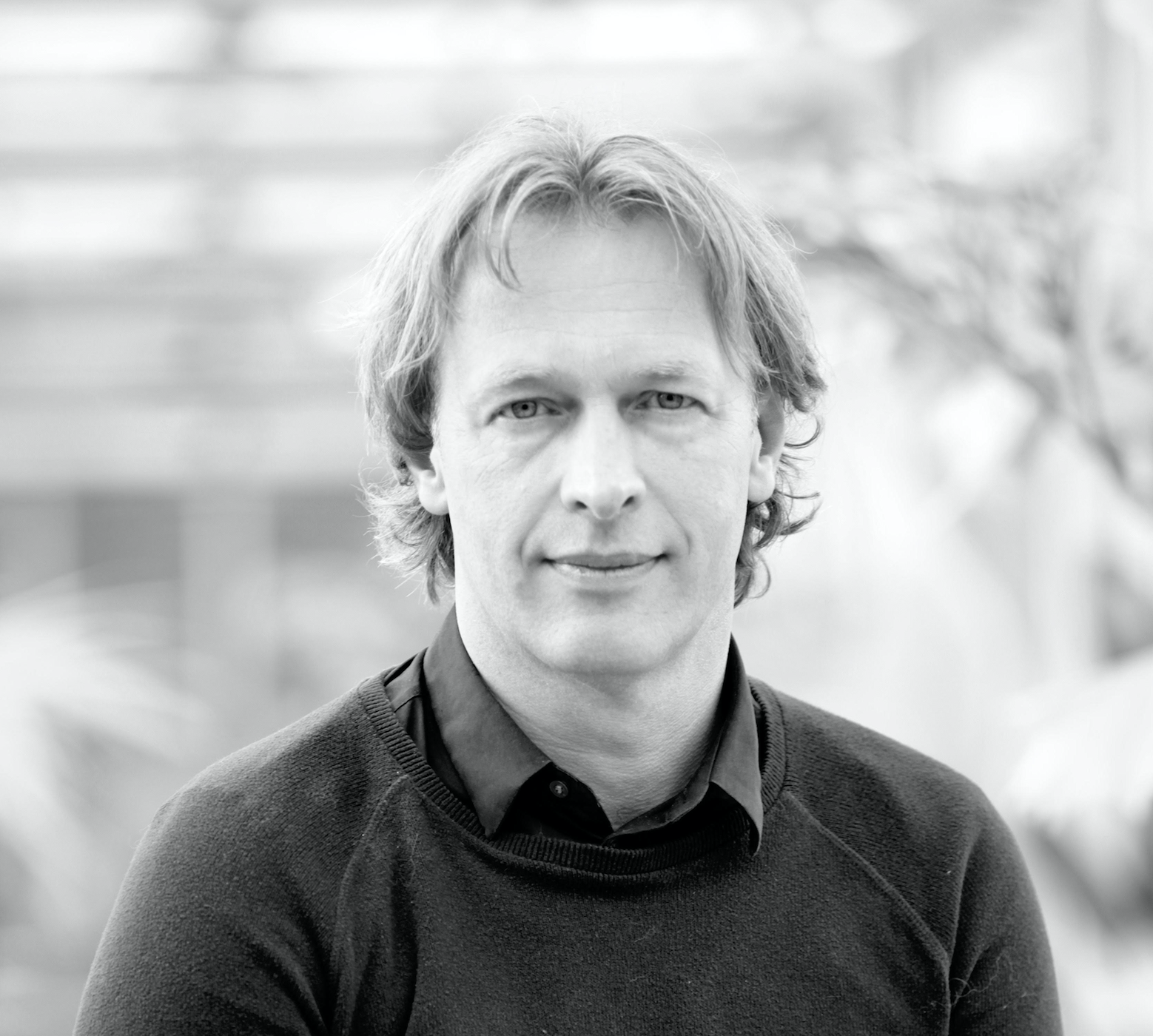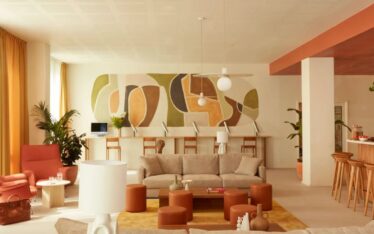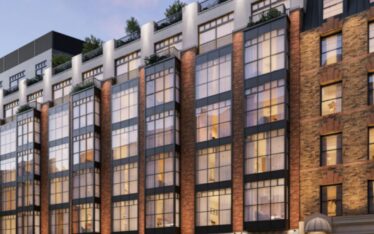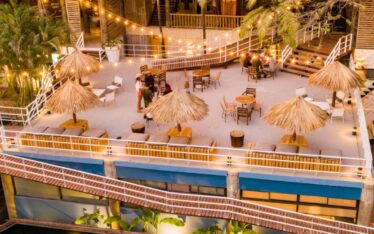The Hybrid Hospitality Podcast will examine the trends that are transforming hospitality and explore what the future of the industry might look like.
In this episode, we find out how Zoku have innovated to successfully adapt their model to the pandemic. We discuss what attracts investors to the hybrid model and hear why Zoku favour mentalities over demographics when it comes to their marketing.
Scroll down to read the transcript of this podcast episode..
Introduction: You are listening to The Hybrid Hospitality Podcast.
If you’re interested in the trends that are transforming hospitality and want to explore what the future of the industry might look like, then you’re in the right place. This podcast is brought to you by Stay the Night, a creative marketing agency, working with hospitality businesses around the world who are changing the way people stay, work and play.
Hi, I’m Rosie Willan co-founder of Stay the Night and for our first ever episode, I’ll be speaking with Hans Meyer, the co-founder and Managing Director of Zoku. Launched in 2016, Zoku are a pioneer in the hybrid hospitality space and created an entirely new category in the hotel industry. The home office hybrid currently located in Amsterdam – they will open sites in Vienna and Copenhagen later this year. Hans leads on concept development design and branding, marketing, operations and strategic partnerships for Zoku. Prior to co-founding the brand, Hans was the initial creator and founding partner of citizen M hotels where he was responsible for concept creativity, design and development.
In this episode, we find out how Zoku have innovated to successfully adapt their model to the pandemic. We discuss what attracts investors to the hybrid model and hear why Zoku favour mentalities over demographics when it comes to their marketing.
Hi Hans, welcome to The Hybrid Hospitality Podcast and thanks for taking the time to chat with me today. First of all, can you tell me how are things at Zoku and how have you adopted your business model to the pandemic?
I think like with anybody in the industry Zoku has been hard hit. I think that’s impossible to avoid. So when the pandemic hit, we built up a team that would follow the developments on a day by day basis. And of course when we were entering in a lockdown in Amsterdam, the first thing we did is basically covered costs immediately, postponed investments… but pretty fast after that, we decided to stay open. And because we still had occupancy – especially in the long stay segment – we adapted the entire concept to COVID-19. Everything at Zoku is basically built around how we want to facilitate it. People can effortlessly connect with each other, but it became pretty difficult with all those social distancing rules.
And we said, okay, we very much believe in physical distancing, but we first wanted to look for ways how we can keep the social distancing at a minimum, because you can imagine during COVID-19, a lot of people actually stayed here away from friends and family. Sometimes they were stuck in the Netherlands and we just wanted to give them still a kind of community feeling, which we obviously did with technology. We also did it with a kind of a buddy system where basically our staff checked in with a number of residents on a daily basis, just to see how they were feeling. We needed to adapt the entire concept from a physical point of view because we were not able… obviously normally we have a table where 10 people can have dinner together but that wasn’t possible either.
So, the entire physical space needed to adapt. We had to change all the signage, housekeeping procedures, all our operating procedures, cleaning procedures, trainings for our staff. So basically that was a big change. But also at that time, we also started to look, okay, our main target audience always used to be international business and that business wasn’t there anymore. So we said, okay, how can we adapt our concept to still move towards another part of the spectrum, which is basically domestic leisure, which we did during the summer months and we were absolutely successful and very happy about it. But also we felt this is an exceptional situation because since the opening of Zoku, we were always above 90% occupancy. And we obviously were not at those kinds of levels during this period. So we said, okay, this is also an interesting era to experiment, to try new business models.
So for example, within Zoku and the Zoku Loft, we moved the bed so the most important piece of furniture in the room became the kitchen table. That’s the place where you can have a cappuccino, where you can have a meeting with four people during the day and have a dinner in the evening. So the Loft – we could easily sell it as workspace for people who needed to work from home, but didn’t want to work from home. So we introduced the word Loft, and then we also found out that more and more people wanted to meet with one or two people in the Loft, which also was possible. We already had the hotel room in the service department function within the same space, but then also we stopped to think, okay, how can we extend and how can we stretch our business model even further?
And then we started with an initiative which we called ‘Better Together’ and the idea of Better Together was basically to create unconventional partnerships with all other parties that also were suffering from COVID-19. So the first thing we did is we teamed up with Joris Bijdendijk – Joris is one of the most famous chefs here in the Netherlands, a Michelin star chef. And we said, okay, if we can – from the Zoku Lofts – create a kind of spacious micro apartment, private workspace, meeting space, can we also create a private restaurant from that? So we basically built and the biggest collection of private restaurants in the Netherlands -we had 50 of those lofts reserved for that and we sold out and people got a four-course Michelin star dinner in their loft. Joris connected everybody through zoom and after dessert in the corridor, we created musical entertainment and that was basically the start of something we felt ‘okay, we can experiment even further than our traditional model’.
We repeated these kinds of events with a number of partners here in Amsterdam. For example last Saturday, we teamed up with De Parade, which is the largest Dutch theatre festival and we basically made micro theatres out of the Zoku Lofts, where we combined food, drinking and entertainment in the corridor again, while meeting all the guidelines which we had, but still being able to give people a fantastic experience where everything in Amsterdam – all the restaurants, bars, everything is closed. So that was interesting and what we continue to do now is to stretch the model even further. So yesterday , I did a LinkedIn post where I asked my network, what kind of other ideas do we have? So basically cutting costs, postponing investments that in your concept, but at the same time, using the spirit as a fantastic opportunity to experiment and stretch your model.
Great. And the partnership with De Parade – that sold out, right? I saw that sold out and you’re going to repeat that now?
We are going to repeat it and it’s running out fast as well. But for example, there is a market in Amsterdam this weekend – for example, we have been at 10, 12% but we will be at 92% this Saturday due to these kinds of events, which of course we don’t have every day, but at the same time, we still feel that we have the options to basically focus on different segments due to the fact that we have such a hybrid and flexible approach.
That’s amazing. And so innovation has obviously been so important during this time. You can see that the businesses who’ve succeeded across sectors are those who’ve been able to innovate and react quickly. And so how do you create – from a business perspective – an atmosphere behind the scenes at Zoku that facilitates that?
Well, first of all, every company has organizational values. So one of our values actually within the company is always better. Always better means for us – Mark the co-founder and I – we always want to foster innovation and experimentation. So we give a lot of opportunity to our teams to actually come up with great ideas, but also test them. And before we go to test those ideas, we basically adapted lean startup principles. So create a kind of minimal viable product, define in advance when it would be successful and if you fail, fail fast.
Apart from that, I think we have a fantastic creative team that can think beyond the obvious. I mean, of course you can think about, okay, not doing that well, let’s try to create a package where we include a bike or a boat ride – but those things, a lot of hotels are actually doing. So what we try to do is to challenge each other to think beyond, to think further and then maybe sometimes we end up with crazy ideas, which initially sounded crazy, but actually worked extremely well.
That’s great. And so, to talk about the hybrid model a little bit more – Zoku were the first to bring the home office hybrid to the market back in 2016. And since then, it’s fair to say that the model has been adopted quite rapidly across the industry, especially over the past year. How do you see the concept of evolving now? And do you think it could be the end of the traditional hotel model?
Well, I don’t think to be quite honest that the traditional hotel model will die. At the same time, I think there are much bigger opportunities for hybrid models. The truth is, is that when we created Zoku, we basically had a few markets. So first of all, within the travel market, we focused on hotel markets – one to four nights, short-stay market (five nights) on to 28 nights and long stay markets, which was always longer than 29 nights. And that means that we always could find a kind of an ultimate between those different segments, where we would allocate our inventory. After that, we basically created the coworking concept within Zoku. So what a lot of hybrid hospitality brands are doing is creating dedicated co-working spaces within their premises. Basically what we did, we stack it onto our normal space. So I think the secret of Zoku is that we stack different business models on the same square meter. And after hotels short-stay and low stay and offers market, we also found out, okay, we can even go into residential, meaning coliving because you could stay in Zoku for one night but you can also stay there for nine months. Recently, we also learned we can use Zoku Lofts as event spaces.
So I think the most interesting part of a hybrid is if you’re able to stack different business models on the same square meter, basically, you are going to create a 168 hour per week revenue opportunity. So that means theoretically here at Zoku, a person could stay for the night between seven o’clock in the evening and say eight o’clock the next morning. And then the next morning housekeeping comes in and from nine until five, we can rent out a space again as private workspace, and then somebody else can take that space in the evening. I think that’s an interesting development that the hybrid model has.
Yeah, for sure. And so just to touch on that and take that further, you introduced a monthly coworking membership at Zoku whereas some businesses would go for a more casual working from a lobby approach. What are the benefits to a monthly membership, would you say?
Well, the thing is, I mean, what happens now is that a lot of companies, they found out that actually they don’t need an office that bad. For working eight hours behind your laptop, you can also do that from other spaces. So it’s interesting also for a hospitality place, you think about, okay, what’s happening in the office market, because you see that the border start to blur between hospitality and offices. There’s a huge opportunity. If you look to a lot of companies like McKinsey and JLL and these kinds of advisories, they all feel that the workplace will be a kind of a workplace ecosystem where people can go into offices, they can work from home, but they also can work from those kinds of third places. The interesting part is if you now lease an office, you need to for example, sign a 10 year lease, you have to give a lot of guarantees, Then you have to invest in the fit out. You also need facility management and most of the time, you’re not that flexible because it’s not very easy to grow or to shrink as a kind of a company within a given contract. The interesting part about hotels is they are used to rent out their spaces day by day, and they are also social spaces.
The office of the future will be a space where people love to be social, where people love to collaborate, and that’s already what we can offer today. So within Zoku, people can come to work for a day or they can buy a monthly membership and within Zoku they can choose, okay, I now need some focus space. So I’m going to, into a work loft where it’s fully silent, I can do my calls, I can have private conversations. And at the same time, if I want to work a little bit more in the vibe, and I want to have some people around me, then I go to the social spaces and I’m going to join one of the events that we are organising for those members.
And I think that really shows how you put your members’ needs and audience’s needs at the core of what you do, because we use a coworking space for Stay the Night and to give people those multiple options in one space is really good. And it’s exactly what you need. You hear people complaining about, I couldn’t get a meeting in space, it was too loud to have that meeting in the shared space. So it’s things like that I think the places that succeed with the co-working concept are going to have at the heart of what they do. And so you also mentioned coliving a little while back, and I think this is something that’s another growing trend. And as more people move towards the work from anywhere lifestyle, it’s only going to grow more rapidly. And so I know that you experienced this yourself when you were kind of adopting a digital nomad lifestyle while researching for Zoku – can you tell me more about this experience and what insights you took from that?
We are very strong believers that you need to put your future target audience in the centre of everything you do. So when starting with Zoku, I first interviewed a hundred and fifty people from the target audience – basically those digital nomads that you were referring to, and often you can ask people what they want, but I also learned that people don’t often know what they want, but they know very well what frustrates them when working and living internationally. That created a lot of insights. So I felt okay if I really want to learn my target audience and my target audiences needs, then I need to step out of my own shoes and step into their shoes. And that was basically the start of a six months experience where I stayed two months in Buenos Aires, two months in Washington, DC and two months in Bali – running my company remotely.
And the interesting part is I’m not a very shy person, but what I learned in all those cities – as soon as you know a number of people, your level of happiness almost grows exponentially because then it really starts to feel a little bit like home. During my research, 90% of the people told me that if you go to a city that you don’t know where you don’t speak the language, that after a few days, weeks, you start to feel a little bit disconnected. You start to miss your friends and your family, and maybe the food of your mom or your dog or whatever. So the interesting thing was basically that it was crucial to create a kind of a social structure. Now, the only segment who really got that pretty well is the hostel segment because I mean, what often happens in a hostel is that you stay there for the night, you jump out of your bunk bed and then you say, okay, I’m going to grab one coffee, and then I’m going to explore the city.
But after two hours, you’re still behind a big table with a lot of people you haven’t met before. Now, there is a moment in your life that you don’t want to sleep in a bunk bed anymore with 40 people in one big room, you don’t want to shower in the corridor, you want to have your own private bathroom. And that’s basically what we do – we try to bring together some of those very sophisticated elements with some very smart elements from the hostel world. That’s why these social spaces – where we basically facilitate effortless connection between people – became fundamental. And I think this was the greatest insight – that the social part is so crucial from my living and working experience.
Yes, absolutely it is. We were in a webinar earlier where we were talking about doing your research into your audiences and going beyond just the demographics, like age, location, gender, to really understand the values and motivations. And I think you’ve previously mentioned that you believe in mentalities over demographics, and this is something that we at Stay the Night kind of push with our clients. Can you explain why this works when it comes to marketing for Zoku?
Well, first of all I don’t believe in demographics at all anymore because I know people from 50 years old, they behave like 30 and the other way around as well. And at the same time, what is the fundamental or critical success factor from a community – that there is like-minded this between the people. But what we also learned is that Zoku is a real hybrid – it sort of means you can sleep here, you can work here, you can relax here, you can meet here, all those different things. So from a branding point of view, it’s a little bit complicated because you offer so much, but what connects everything with in what you offer is basically the mentality of the people that you basically are focusing on the certain mentality of people that you want to be the best possible product for. So what we see now here is that for example, it could be a local person from Amsterdam, but he or she likes this international vibe and also likes to work here. And so while at the same time, there’s a kind of an international coming from the US or from Asia, they also would love to meet those local people. And I think this kind of cross-pollination within the concept that we actually actively facilitate with a dedicated community manager, that creates a lot of value. So if you compare that to a traditional hotel model, there’s always putting a head in the bed. Our business model for us is really bringing people together and that really pays off.
It’s really interesting because as you say that, I think of my traveling memories from backpacking and some of the most interesting people I’ve met are people who are locals outside of probably my age group in those conversations around the bar, or however that comes about. And so I think having that mix does benefit everybody.
Actually, I often compare a lot of hotels to embassies. You only go there when you need to be there while we have a kind of a much more open structure here, because a lot of people who actually stay with us for longer periods, obviously those people are internationals, but the majority of the co-working members, those ones are locals. And I think that this is really interesting if you bring those people together.
And so we might have covered a little bit of this already, but in their recently released IPO, which I know you’ve read, Airbnb revealed that their bottom line had benefited from the move towards remote working. So what are the key advantages for guests of staying at Zoku versus an Airbnb apartment?
Well, I think the most important thing is that what Airbnb cannot do is to provide the social structure that we actually can. I mean, obviously Airbnb has great apartments, not so great apartments, different price levels, different qualities, obviously that’s something that you buy into so you can easily see, okay, the reviews scores of 9.2 you can actually see the product in very much detail, you can read about a lot of reviews – it’s basically an easily accessible product. There’s 24 seven staff onsite, these kinds of advantages we offer but I think that the most important difference relates to the social structure. I mean, if you talk to the target audience, and if you talk to companies, we’re actually bringing their people here. They see that as the biggest, biggest added value. A lot of people describe Zoku – especially long stay residents – it feels a little bit like your extended family. And that’s something that not a lot of Airbnb apartments can offer.
No, definitely not. And I think from our experience with our own clients, it’s something that guests really like when we post about staff at certain sites, those posts will get the most comments and things on Instagram with people feeling like that’s their friend and that’s what that sort of atmosphere facilitates for sure. And so just to talk about your sites, so as you expand into new locations, because something about the hybrid model is that it’s so individual and people like those individual sites, that almost feel like independents within a chain, I suppose. So how will you strike the right balance between standardisation and personalisation? So key sites going forward?
So the interesting thing is, I mean, it’s absolutely interesting what you say. I mean, if you want to grow and from a cost point of view, you need to standardize certain things. But at the same time, for example, I’ll give you an example about the Lofts – the Lofts are also in Copenhagen and Vienna and you actually will only notice small updates – they will look more or less the same. But for example, in each location, we have a kind of an art collection built in the corridors doors where we actually give people the opportunity to personalise the space. That’s kind of a small gimmick, but actually people like it a lot because they actually have influence onto their own space. And if you look to the social spaces, definitely, I mean, the buildings are different, both in Amsterdam and in Vienna and in Copenhagen, the social space is on the roof level.
We like it so much to bring in so much daylight to bring in a lot of green and these kinds of quality aspects. So you will definitely recognise it is Zoku but with a little bit of difference at each site. I will use the gallery as a kind of a metaphor. So the gallery in itself is not that special. What happens if you really put your art in it? And for example, in the cinema, the same thing – the quality depends on the programming. So what we obviously do also in the other series is to work together with local networks to basically bring those people into Zoku. And then again, those cross-pollinations are going to happen. So it’s basically focused on getting the right nice local people in, and then it works out and that really gives the local atmosphere. And of course we adapt our food and beverage, we adapt our services to the local characteristics. As you say, it’s finding the right balance, but I’m pretty convinced that we will not make cookie cutters in the future, that we are able to give it a kind of a personal and a local twist to Zoku that people will appreciate it.
Yeah, for sure. I think it’s that balance between, so for guests, it’s knowing that they’re going to get the same quality Zoku experience, but in a slightly different environment each time that kind of reflects that locality. And just on that note, finally, what’s in store for Zoku in 2021?
I think the most important thing I think for any operation in 2021 is the path to recovery, the sort of markets that are going to recover. And hopefully that will happen somewhere from Q2. I’m expecting Q1 will remain difficult. And for us, the most important thing is then the opening of both Copenhagen and Vienna – basically tripling our portfolio within the next six months and making those three properties very much appreciated by both the local, as well as the international target audience. I mean, if we are able to get the very high review scores that we were able to get here in Amsterdam, and also that the operations run successfully, I think we will be very happy and we will be very proud.
For sure. I think big things are ahead. Thank you so much for taking the time today. We really appreciate it. That was great. Some great answers there and insights.
You are welcome.
For those listening who wants to find out more about Zoku you can visit their website here.
We hope you enjoyed this week’s episode of The Hybrid Hospitality Podcast.
Don’t forget to subscribe if you’d like to be the first to hear about new episodes.
We’d love it if you could leave a rating and if you’d like to follow us on social media, you can do so.
Just search, Stay the Night on LinkedIn or head to @staythenightco over on Instagram.
Until next time, thanks for listening.
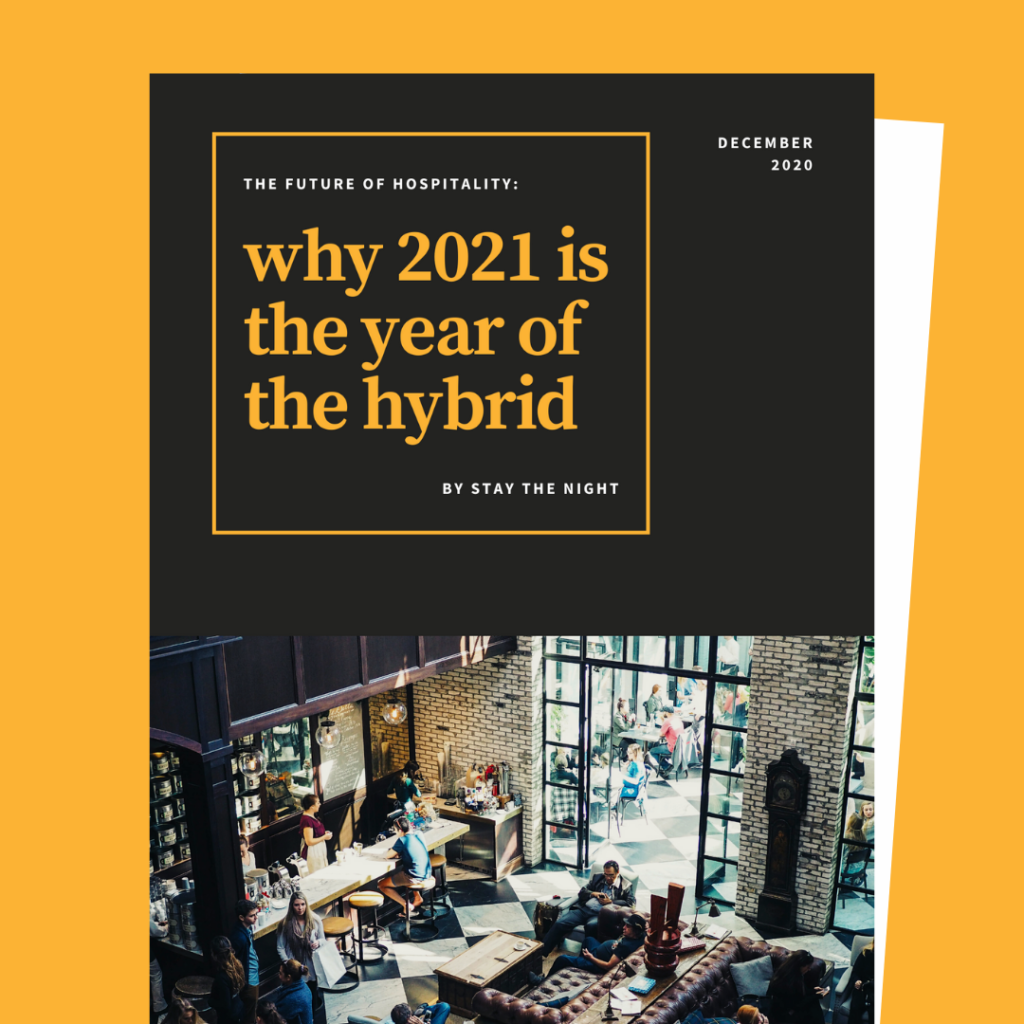
DOWNLOAD OUR WHITE PAPER – THE FUTURE OF HOSPITALITY: WHY 2021 IS THE YEAR OF THE HYBRID
The lines between where we live, work, and play are blurring faster than ever before. As people demand more from the hospitality experience, hybrids are in a strong position to meet this new consumer where they are. In this white paper, we share our 6 predictions on why 2021 will be the year of the hybrid.
We also have interviews with leaders in this space who share their insights on the future of the industry.
